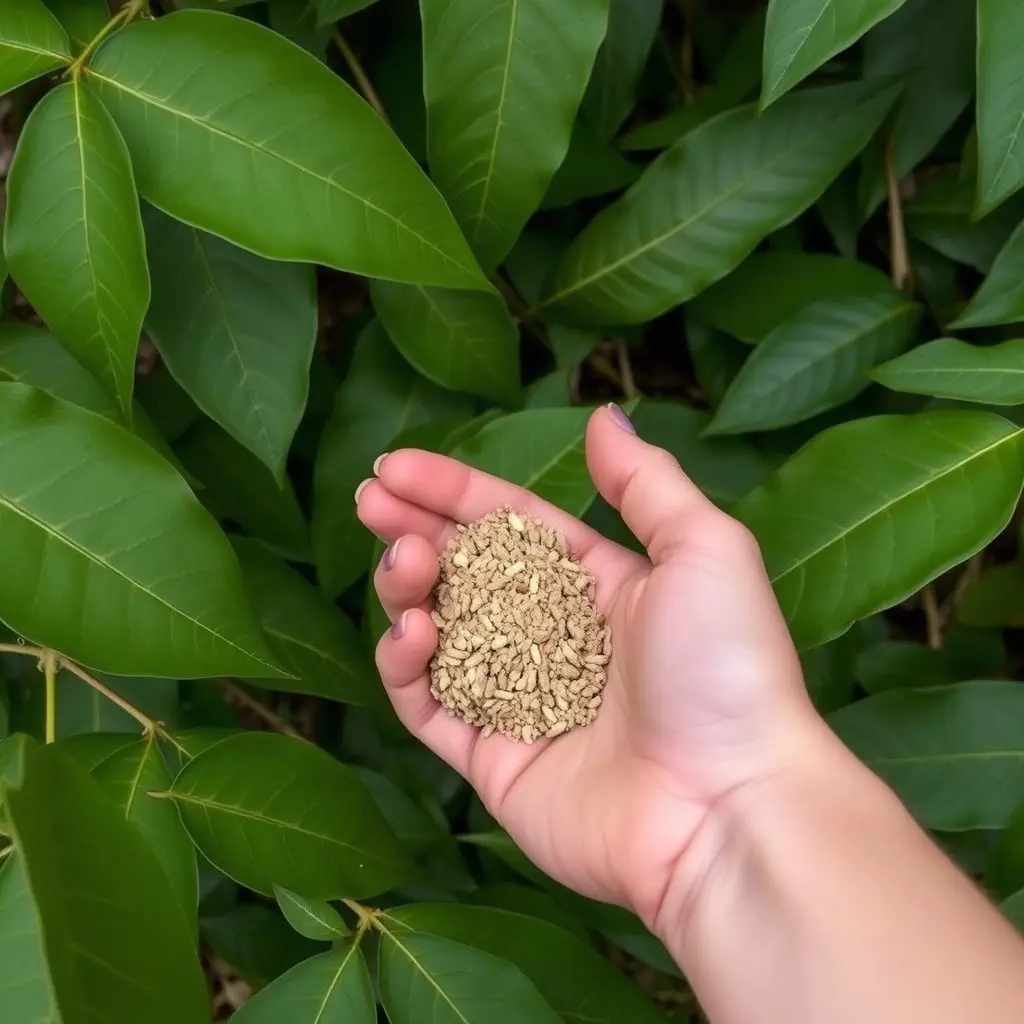Kratom Obchod discusses the potential role of kratom, derived from the Mitragyna speciosa tree, as a natural alternative for managing opioid addiction and withdrawal symptoms. Its alkaloids, mitragynine and 7-hydroxymitragynine, engage with opioid receptors in the brain to potentially relieve pain, enhance mood, and reduce cravings. While scientific research is ongoing to fully understand kratom's effects on addiction treatment, initial findings are promising, suggesting it could be a safer alternative to traditional medications with fewer side effects. Kratom Obchod promotes the use of high-quality, standardized products to ensure safety and efficacy. The discourse around kratom's viability in comprehensive addiction treatment plans, under medical supervision, is gaining traction, although it's subject to regulatory considerations and varies by region. Users are cautioned to approach kratom use responsibly and with the guidance of healthcare professionals due to its potential for dependency and the FDA's concerns regarding risks. The future of kratom in evidence-based practices is a topic of ongoing investigation, requiring careful consideration of both its benefits and risks within the context of addiction recovery.
Kratom, a natural substance derived from the Mitragyna speciosa tree, has emerged as a potentially transformative tool in the realm of addiction treatment and recovery. The intriguing properties of kratom obchod have sparked scientific exploration into its efficacy for managing substance abuse. This article delves into the multifaceted impact of kratom, examining the science behind its therapeutic potential and navigating the complex legal and ethical considerations that accompany its use in recovery. Through a detailed analysis of current research and legal frameworks, we aim to shed light on how kratom could play a pivotal role in the journey toward sobriety and long-term wellness.
- Unraveling the Potential of Kratom Obchod in Addiction Treatment and Recovery
- The Science Behind Kratom's Role in Substance Abuse Management
- Navigating the Legal Landscape and Ethical Considerations of Using Kratom for Addiction Recovery
Unraveling the Potential of Kratom Obchod in Addiction Treatment and Recovery

Kratom, a natural substance derived from the leaves of the Mitragyna speciosa tree, has garnered attention within the realm of addiction treatment and recovery. Proponents suggest that certain strains of kratom, particularly those available at reputable outlets like Kratom Obchod, may offer relief from withdrawal symptoms and support in the journey towards sobriety. The alkaloids present in kratom leaves, such as mitragynine and 7-hydroxymitragynine, interact with the brain’s opioid receptors, potentially providing pain relief, mood enhancement, and a reduction in cravings for those addicted to opioids.
Research is ongoing to uncover the full spectrum of kratom’s effects on addiction treatment. Studies are examining its potential as an alternative to traditional medications, exploring how it might help manage withdrawal symptoms without the side effects often associated with pharmaceutical options. Kratom Obchod emphasizes the importance of high-quality, standardized products to ensure safety and efficacy. As the body of scientific evidence grows, it is crucial for medical professionals to consider kratom as a tool in a holistic treatment plan, one that may assist individuals in overcoming addiction and maintaining recovery. Users are encouraged to approach kratom with caution, adhering to recommended dosages and consulting healthcare providers before integrating it into their recovery regimen. The potential of kratom in addiction treatment is promising, but its role must be carefully evaluated within the context of comprehensive care and evidence-based practices.
The Science Behind Kratom's Role in Substance Abuse Management

mitragynine, an active alkaloid found in kratom, interacts with various neurotransmitter systems in the brain. This interaction may help reduce withdrawal symptoms and cravings in individuals struggling with opioid addiction. Studies have shown that mitragynine can modulate the opioid receptors, offering a potential therapeutic benefit for those transitioning away from opioids. Kratom’s effects are thought to be due to its agonist properties on mu-opioid receptors, which are responsible for pain relief and mood elevation, without the same level of respiratory depression as traditional opioids. Additionally, kratom contains other alkaloids such as 7-hydroxymitragynine, which may contribute to its analgesic and anti-addiction effects. The potential of kratom to manage substance abuse lies in its ability to offer an alternative to opioids while providing a therapeutic window for recovery. This has led researchers to explore the efficacy of kratom as a harm reduction tool, particularly in communities where opioid addiction is prevalent. The scientific community continues to study the mechanisms behind kratom’s effects and its role in substance abuse management, with ongoing research aimed at understanding its full potential in addiction treatment and recovery.
While the FDA has issued warnings about the risks of using kratom, citing potential dangers including dependency and death, it is important to consider the anecdotal evidence and scientific studies that suggest its benefits when used responsibly under medical supervision. The Obchod Kratomu (Kratom Shop) and other reputable sources provide access to high-quality kratom products for those who are exploring this as a treatment option. It is crucial for individuals considering kratom as part of their addiction treatment plan to consult with healthcare professionals, ensuring they receive proper guidance and support throughout their recovery journey. The ongoing research into kratom’s pharmacological properties offers hope for a natural supplement that could aid in the battle against substance abuse, but it is clear that more rigorous clinical trials are needed to fully understand its role in addiction treatment and recovery.
Navigating the Legal Landscape and Ethical Considerations of Using Kratom for Addiction Recovery

Navigating the legal landscape of using Kratom for addiction recovery involves understanding its varying statuses across different jurisdictions. While Kratom, derived from the Mitragyna speciosa tree, is gaining attention as a potential natural alternative to opioids for managing withdrawal symptoms and promoting recovery, its legal standing is subject to change and can be complex. In some regions, Kratom is fully legal and available through various outlets including kratom obchod, while in others it may be restricted or scheduled under controlled substances legislation due to its opioid-like effects. It’s crucial for individuals considering Kratom as part of their recovery plan to verify the current legality in their area, as regulations can evolve rapidly, influenced by ongoing research and public health considerations.
Ethical considerations also play a significant role in the use of Kratom for addiction treatment. The ethical implications extend from advocating for patient autonomy and informed consent to ensuring that the promotion and availability of Kratom do not inadvertently contribute to substance misuse or harm vulnerable populations. Healthcare providers must be well-informed about the potential benefits and risks associated with Kratom use, including its interaction with other substances and its efficacy in long-term recovery plans. Ethical practice also necessitates a commitment to ongoing research and dialogue among medical professionals, policymakers, and communities to responsibly guide the integration of Kratom into addiction treatment protocols. As such, the use of Kratom for addiction recovery must be approached with careful consideration and within the boundaries set by both legal frameworks and ethical standards.
In conclusion, the exploration into the potential of kratom obchod in addiction treatment and recovery presents a multifaceted narrative. The scientific community has begun to uncover mechanisms by which kratom may assist individuals in managing substance abuse, offering hope for those navigating the challenges of recovery. However, it is imperative to consider the legal and ethical implications surrounding its use. As with any therapeutic approach, careful oversight and research are essential to fully understand its efficacy and safety. Kratom obchod could represent a promising avenue in the holistic toolkit for addiction treatment, but only through rigorous scientific investigation and thoughtful policy-making can we ensure its responsible inclusion in recovery strategies. It is a field ripe for further study and discourse, with the ultimate goal of providing effective and accessible support to those in need.






